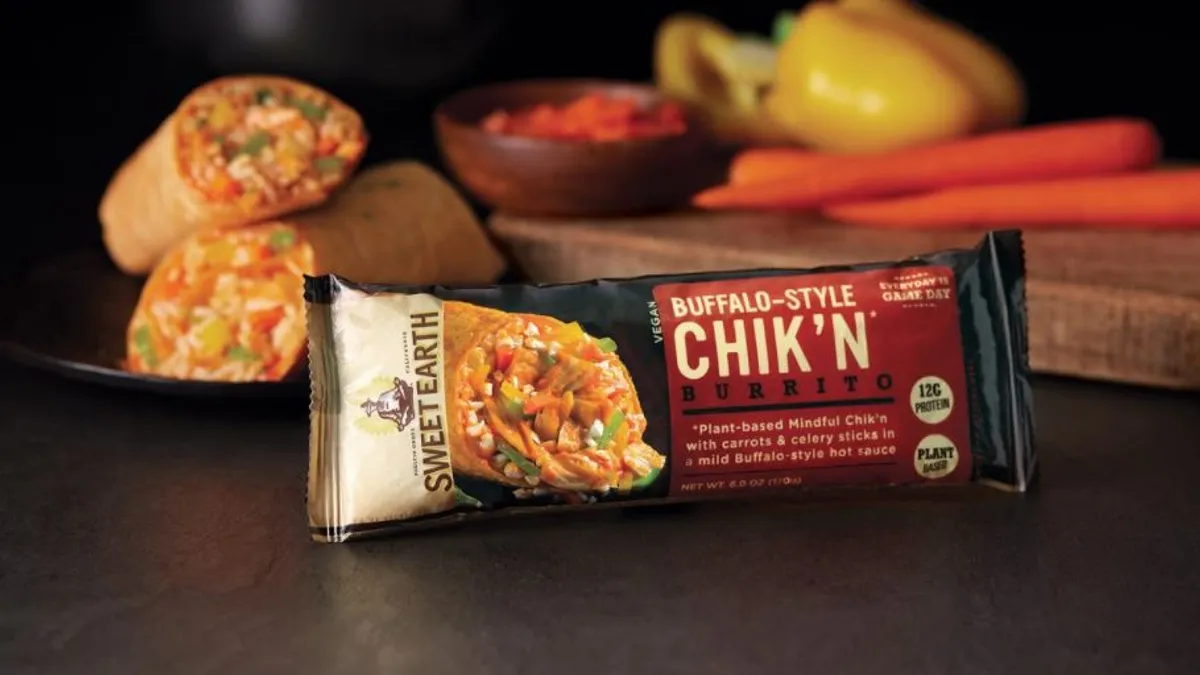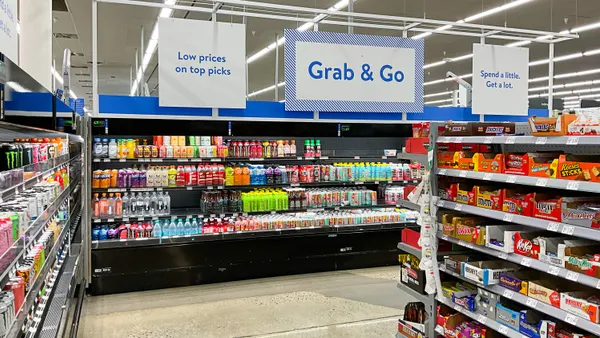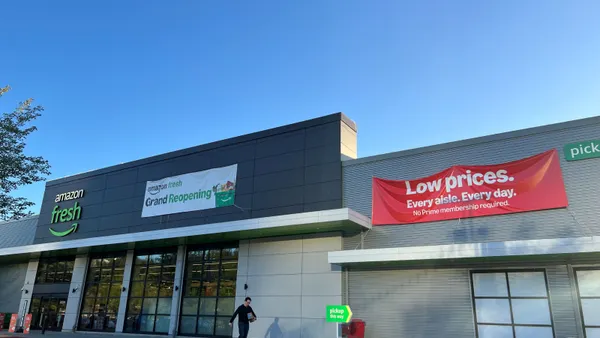Dive Brief:
- During the height of the pandemic, the percentage of consumers who ate meal replacement products such as energy or protein bars dipped from 36% in Q1 2020 to 30% a year later, according to data from Murphy Research emailed to Food Dive. The firm conducted online surveys with 1,000 teens and adults in the U.S., ages 13 and over, starting in July 2018 and interviewed people ages 22-64 in March 2021.
- While the research firm notes the decline in meal replacements may not be permanent, it reported what consumers want from on-the-go eating has shifted, with many preferring a "real meal" if given the choice.
- Over the past year, consumers have spent more time eating at home and CPG companies like Nestlé and Kellogg have responded by developing products that meet the desire for a full meal while still providing convenience.
Dive Insight:
Food manufacturers who can combine the demand for convenience with the taste of an actual meal could appeal to more consumers as they return to work and a more active lifestyle.
Throughout the pandemic, breakfast food makers, in particular, have responded by launching a variety of products that offer a robust meal that can be prepared with little fuss. Nestlé's Sweet Earth recently debuted microwaveable plant-based breakfast bowls featuring breakfast meats, scrambled eggs, cheese and vegetables. Meanwhile, Vital Farms launched a spin on the traditional bar space by offering egg-based breakfast bars that feature breakfast meats, cheeses and more.
Egg bites have also seen a rise in popularity as a hearty option that can still be eaten quickly. Bob Evans Farms launched two on-the-go refrigerated egg-based options, including egg bites and omelet rolls. Plant-based food maker Eat Just also rolled out sous vide egg substitute bites while Vital Farms entered the segment with a microwaveable option focused on transparent sourcing and ethical treatment for egg-laying hens.
Aligning with Murphy's research, data from Bernstein last year reported on Food Navigator showed sales of nutritional bars plummeted during the early stages of the pandemic as consumers spent more time at home. While Bernstein also predicted the dip to be temporary, several bar makers came out with new products that provided more "real meal" options.
Kellogg's RX continued to diversify beyond its protein bars to create RX Cereal, which has higher portions of protein and clean label ingredients. Clif also launched a clean label cereal line that offers less sugar compared to traditional leading cereals, according to the company.
Still, food makers haven't given up on the bar space. Kind debuted a new oat-based energy bar for the clean label segment in October.














